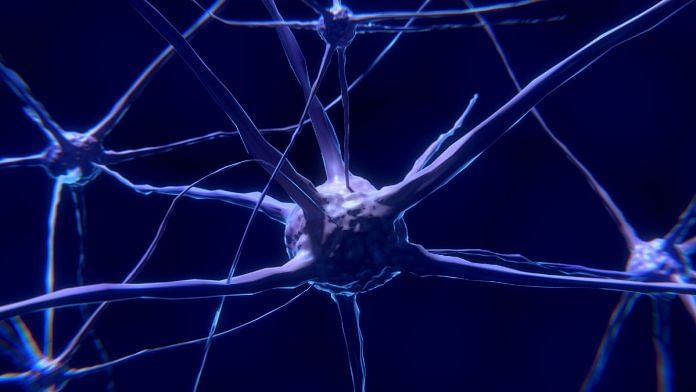Bengaluru: Aging as a normal process is associated with a gradual decline in memory. But, some senior individuals, over the age of 80, demonstrate exceptional memory that is comparable to individuals at least 20-30 years younger than them, finds a study
The study, conducted by researchers from the US’ Northwestern University, is a part of its SuperAging Research Program and has been published 30 September in The Journal of Neuroscience. The study set about investigating if such “SuperAgers” had differences in the region of the brain associated with converting short-term to long-term memory, called the entorhinal cortex (ERC).
The team found that when compared to their cognitively-average peers or the “normal elderly”, the SuperAgers had significantly larger neurons, which contributed to increased memory in old age. The size of neurons were also larger than those with early-stage Alzheimer’s and individuals two to three decades younger. These neurons did not show signs of accumulation of a protein, tau, in the form of neurofibrillary tangles, typically associated with Alzheimer’s.
“The remarkable observation that SuperAgers showed larger neurons than their younger peers may imply that large cells were present from birth and are maintained structurally throughout their lives,” lead author Tamar Gefen, an assistant professor of psychiatry and behavioral sciences at Northwestern University’s Feinberg School of Medicine, said in a statement from the university.
“We conclude that larger neurons are a biological signature of the SuperAging trajectory.”
The findings provide key insights into understanding the progression of Alzheimer’s and why some individuals are more susceptible to it than others.
Also Read: A new theory suggests Alzheimer’s is an autoimmune condition
About the research
For the study, the researchers examined brains of six SuperAgers post mortem, seven normally elderly brains of comparable age, six younger individuals, and five with early Alzheimer’s.
The findings show that larger neurons that maintain structural integrity are spared from tau tangle formation, or the accumulation of tau proteins. Conversely, they also show that tau tangles lead to shrinkage in neurons.
“We suspect this process is a function of tau tangle formation in the affected cells leading to poor memory abilities in older age,” Gefen said in the statement.
“Identifying this contributing factor (and every contributing factor) is crucial to the early identification of Alzheimer’s, monitoring its course and guiding treatment.”
The researchers decided to investigate the entorhinal cortex as research has shown previously that it is one of the first parts of the brain susceptible to dysfunction in Alzheimer’s, and that also helps consolidate memory.
This part of the brain consists of six layers of neurons stacked one on top of the other. The second layer from the top receives information from other memory centres, forming a central hub in the brain’s memory processing network. It is this part of the brain that shows larger than average neurons, with no tau tangles, in the case of the SuperAgers.
The factors that lead to some people’s brains being resistant to tau tangles and having structurally large neurons in Layer II of ERC are currently unknown and being investigated as a follow-up. The study is expected to be expanded through a $20 million programme recruiting at five sites, said the statement from Northwestern University.
(Edited by Anumeha Saxena)
Also Read: Will you have dementia in future? Your nightmares can tell: UK study



